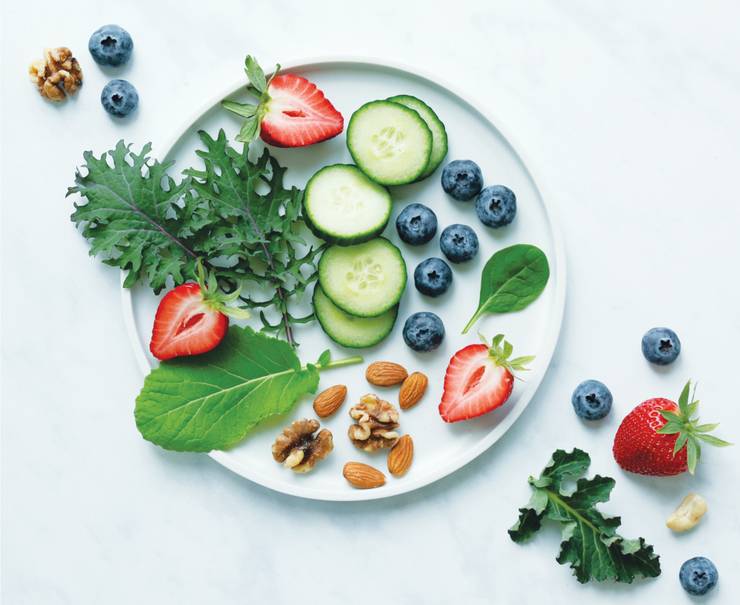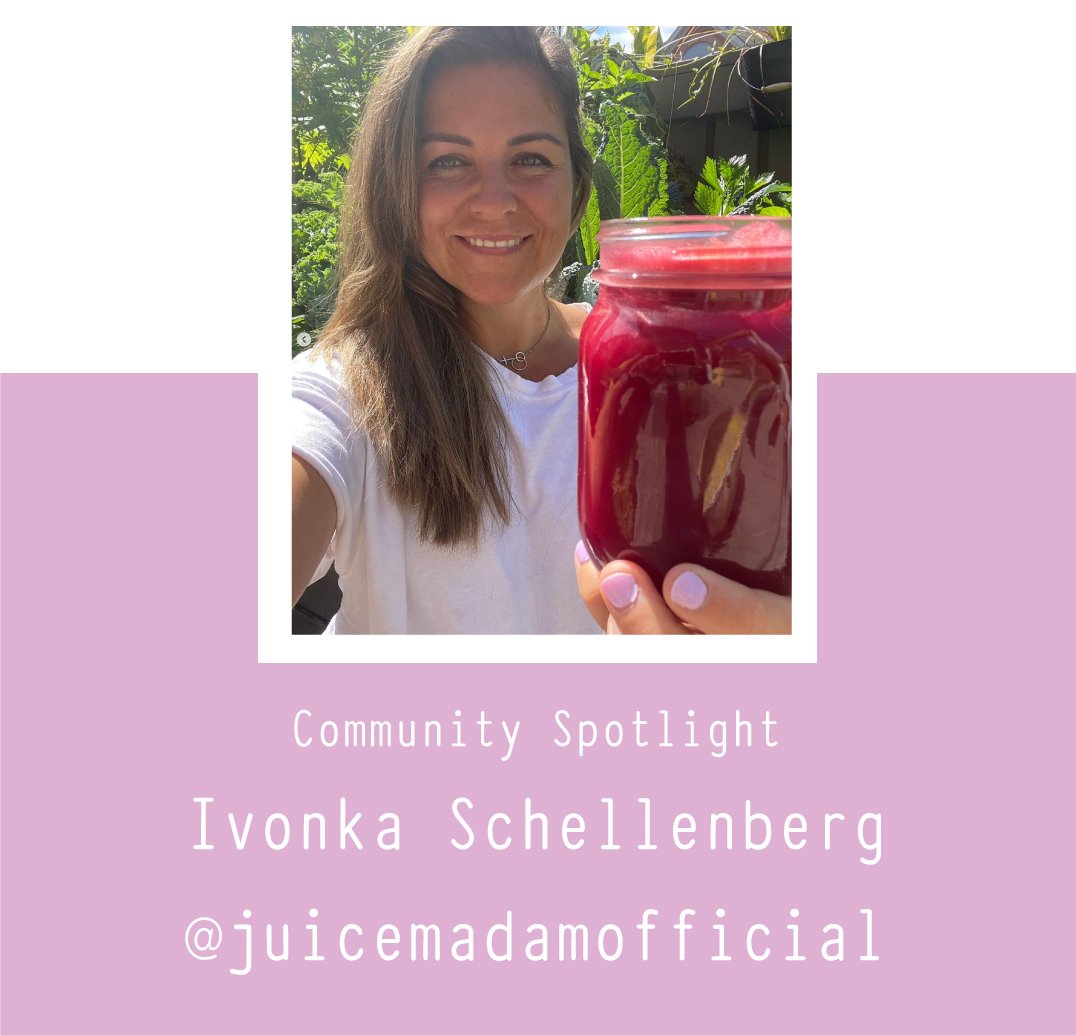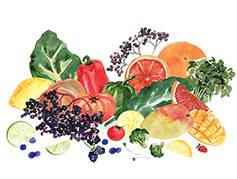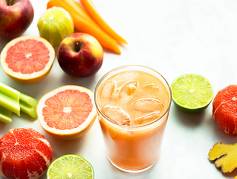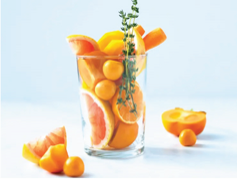Articles
The Food & Mood Connection
Most people think that the phrase, “you are what you eat,” refers to the body, but what about the mind? Your mood and brain function can be greatly impacted by what you consume.
Which foods help promote better brain cognition, help mend your mood, and maybe even stave off diseases like dementia? Let’s talk about all the ways to feed your head.
HERE'S WHAT THE RESEARCH SAYS
People who consume plenty of nutrient-dense foods report less depression and greater levels of happiness and mental well-being, according to research.[1] A large-scale 2016 study following more than 12,000 people for an estimated seven years concluded that those who increased their intake of fruits and vegetables rated themselves substantially higher on questionnaires about their levels of happiness and life satisfaction.
Nutritional psychiatry is an emerging field that looks at this connection between diet and mental wellness. This practice doesn't overlook other treatments for mental or cognitive health, but it does say that food matters too.
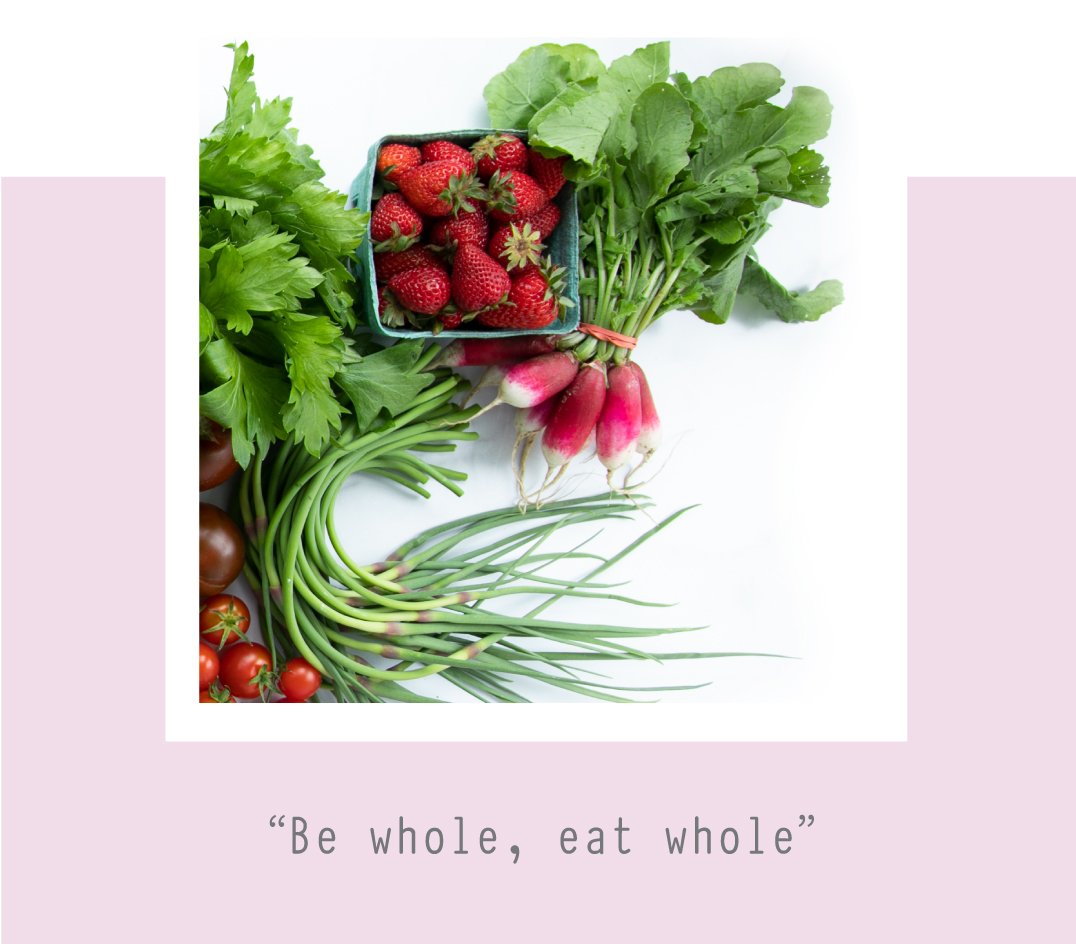
"Be whole, eat whole," writes Dr. Uma Naidoo, a Harvard psychiatrist, author, and director of nutritional and lifestyle psychiatry at Massachusetts General Hospital, on her blog about the first tenet of nutritional psychology.[2]
She recommends that 80 percent of your diet comes from whole, real foods with plenty of fiber, which is great for both your brain and your gut. Complex carbohydrates are high in fiber—think fruits, vegetables, whole grains, and beans. These foods also take longer to digest and break down in the body, offering a steady source of brain fuel throughout the day.
Another pillar of nutritional psychology is to "eat the rainbow," something we talk a lot about here at Nama.
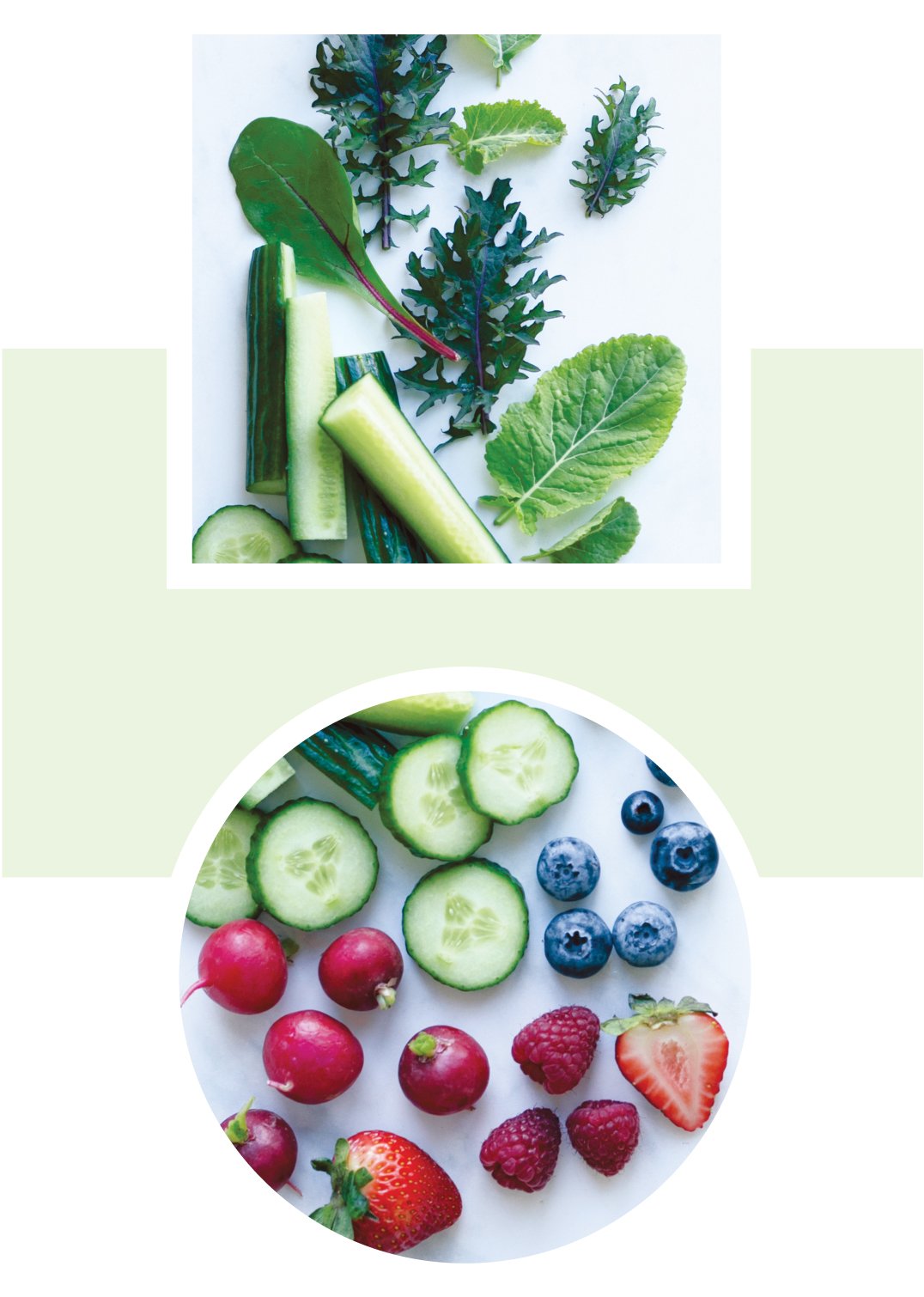
"Different colored plant foods contain different brain-boosting nutrients, so in order to optimize the nutrient quality of your diet, be sure to eat the rainbow," Dr. Naidoo writes. "With every meal, strive to fill 75 percent of your plate with whole, fiber-rich, low-glycemic vegetables such as leafy greens, cucumbers, radishes, eggplant, mushrooms, and tomatoes."
DIETS THAT SUPPORT BRAIN HEALTH
Research shows that two styles of eating, in particular, can provide strong protection against cognitive decline.[3] The first is the Mediterranean diet, which is named for the plant-forward approach enjoyed by many residents that live near the Mediterranean Sea, including France, Spain, Greece, and Italy. It focuses on fruits, vegetables, whole grains, legumes, fish and other seafood, and unsaturated fats such as olive oils. People in this region tend to eat less red meat, eggs, and rich desserts.
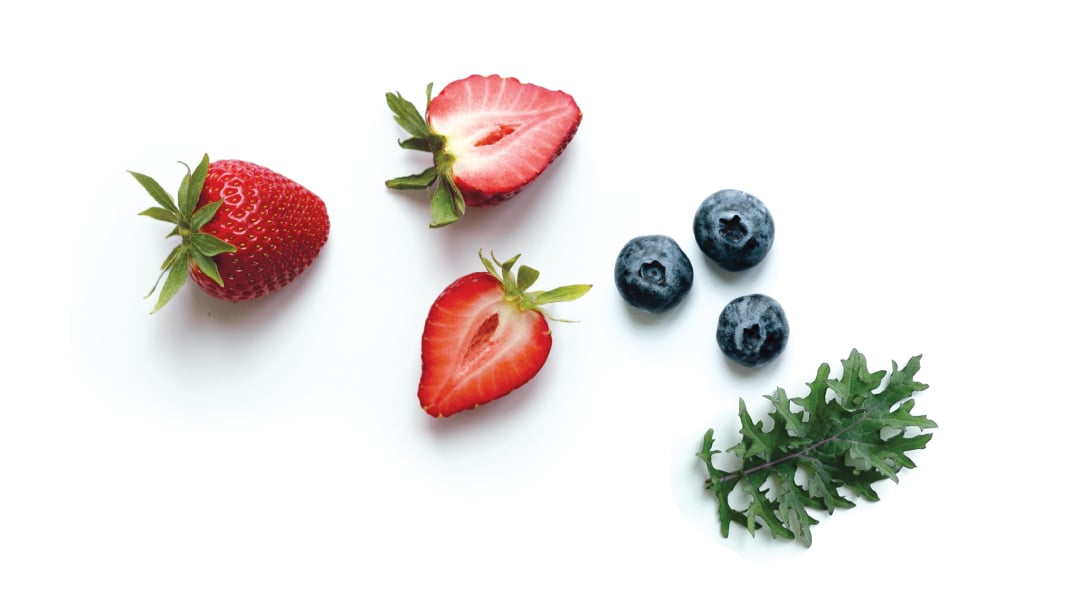
The MIND diet is a hybrid of the Mediterranean eating plan and DASH (Dietary Approaches to Stop Hypertension) diet.[4] This way of eating emphasizes vegetables, especially green leafy vegetables, low-sugar fruits like berries, whole grains, nuts, olive oil, and small amounts of fish. It also limits servings of red meat, sweets, cheese, butter, and fried foods. Treating and reducing high blood pressure (by following an eating plan like this one) is also know to help reduce the risk of developing dementia, according to research.[5]
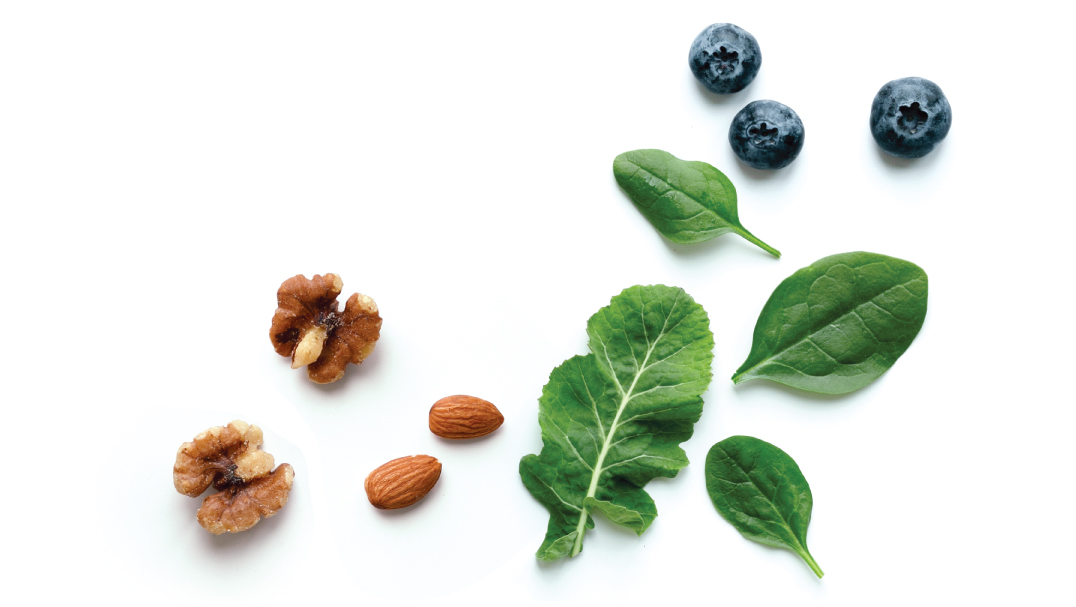
A 2017 study looked at the diets and cognitive performance of almost 6,000 older U.S. adults. Researchers found that participants who ate in a way that closely followed either the Mediterranean diet or the MIND diet had a 30 to 35 percent lower risk of cognitive impairment than those who adhered to these diets less closely.
REDUCING INFLAMMATION
Both diets rely heavily on whole, plant-based foods, which are also known to help reduce markers of chronic inflammation in the body. Inflammation is a natural defense response from the immune system to fight perceived infection or injury. Chronic inflammation can occur when you are exposed to toxins, dealing with stress, eating too many pro-inflammatory foods (as found in the Standard American Diet), or dealing with an autoimmune disorder. Mounting research suggests that this kind of long-term inflammation is also involved in psychiatric disorders.[6]
In fact, the inflammatory effects of a diet high in calories and saturated fat have been proposed as one way that Western diets can have a negative impact on brain health, including cognitive decline, hippocampal dysfunction, and damage to the blood-brain barrier.[7] Observational studies have shown that people dealing with depression have significantly higher measure of dietary inflammation, consuming more foods with refined carbs, trans fats, and generally eating less nutritious foods.
As with all dietary guidance, it's important to note that the occasional treat or departure from good-for-you foods is not the issue. No one is perfect or should strive for perfection. What you consume most of the time is what matters most. If you aim for about 80 percent of your food to be rich in vitamins and other essential nutrients, as suggested earlier by Dr. Naidoo, then you will be providing your brain with plenty of fuel, and you will probably feel good too.
Another principle from nutritional psychiatry is considering consistency and balance.
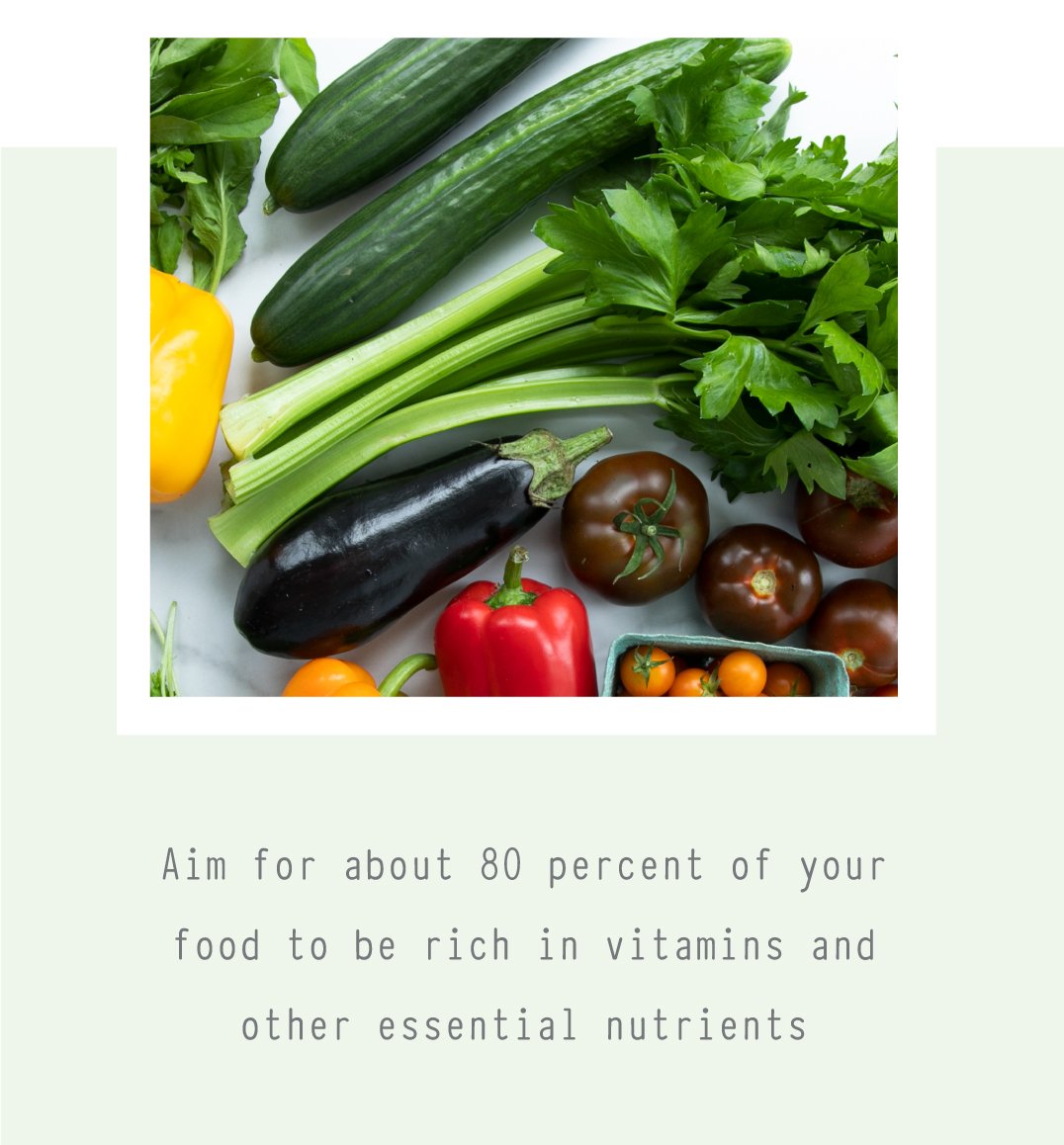
"Our minds are with us for the rest of our lives," Dr. Naidoo writes. "In order to optimize our mental health in a lasting way, it is important to create sustainable dietary and lifestyle changes rather than falling into quick fixes or miracle diets."
WHY SLEEP MATTERS TO OUR BRAINS
Sleep is another huge component to consider when you think about overall brain health. As your head rests on the pillow, your brain prepares for the next day. Research suggests that while you sleep, your brain goes into housekeeping mode working to remove toxins that build up while you are awake.[8] It's also a time for your brain to form or maintain the pathways that allow you to learn and create new memories.
At least 50 million Americans have dealt with some kind of sleep disorder, according to the American Brain Foundation, and both sleep quantity and quality are crucial for brain health.[9] Recent research shows that too little or too much sleep—defined as less than seven hours per night or nine or more hours—can significantly impact brain health in middle-aged adults.[10]
"These findings add to the mounting evidence that sleep is a prime pillar of brain health,"says Santiago Clocchiatti-Tuozzo, MD, postdoctoral fellow at Yale School of Medicine and first author of the study, in a statement.[11]
Whether you have had trouble falling asleep from time to time or have a chronic sleep issue, a few foods can help you get better zzz's.
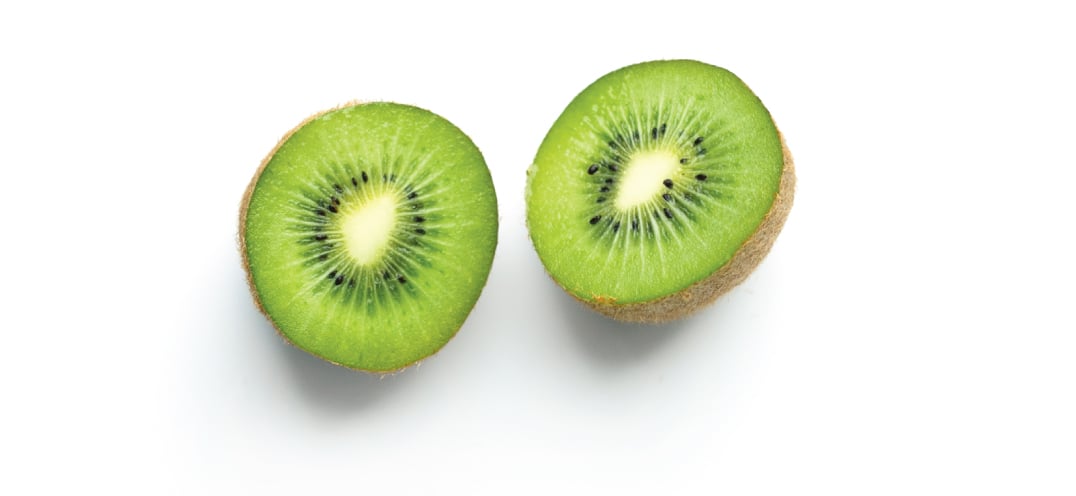
KIWI
This small green fruit has numerous benefits including an array of nutrients such as vitamins C, E, folate, and potassium. Research has also connected this sweet fruit to better sleep. One small study where people ate two kiwis an hour before bedtime reported that they fell asleep faster, slept more, and enjoyed better sleep quality.[12]
TART CHERRIES
Most people are familiar with sweet cherries that come into season during the summer months, but tart cherry varieties like Richmond, Montmorency, and English morello can also be found whole or as "tart cherry juice" throughout the year. People who drank two, one-cup servings of tart cherry juice per day, in a 2018 study, discovered it helped them get more total sleep time.[13] Part of the benefits may come from the high levels of naturally-occurring melatonin found in tart cherries, which can help regulate circadian rhythms and promote deeper sleep.
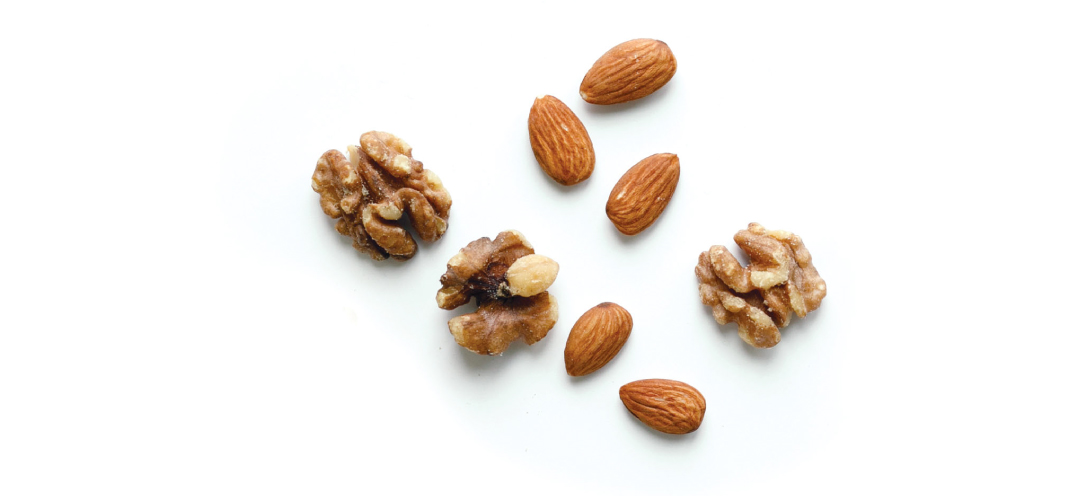
NUTS
Another great food for sleep are nuts like almonds, walnuts, pistachios, and cashews. Not only do they contain greater amounts of melatonin than other foods, but they are also rich in minerals like magnesium and zinc, which are essential to many systems in the body. Plus, they have healthy fats which can help regulate your blood sugar throughout the night.
LIFESTYLE CHANGES
Other helpful lifestyle changes that can help with sleep quality include limiting caffeine intake, especially later in the day when it can keep you up. Moderating alcohol consumption is another tip, as alcohol can actually negatively impact your sleep cycles, even if it makes you feel sleepy. Timing your meals is also a factor, as eating too close to bedtime can disrupt your ability to fall asleep, while your body is still working to digest your food.
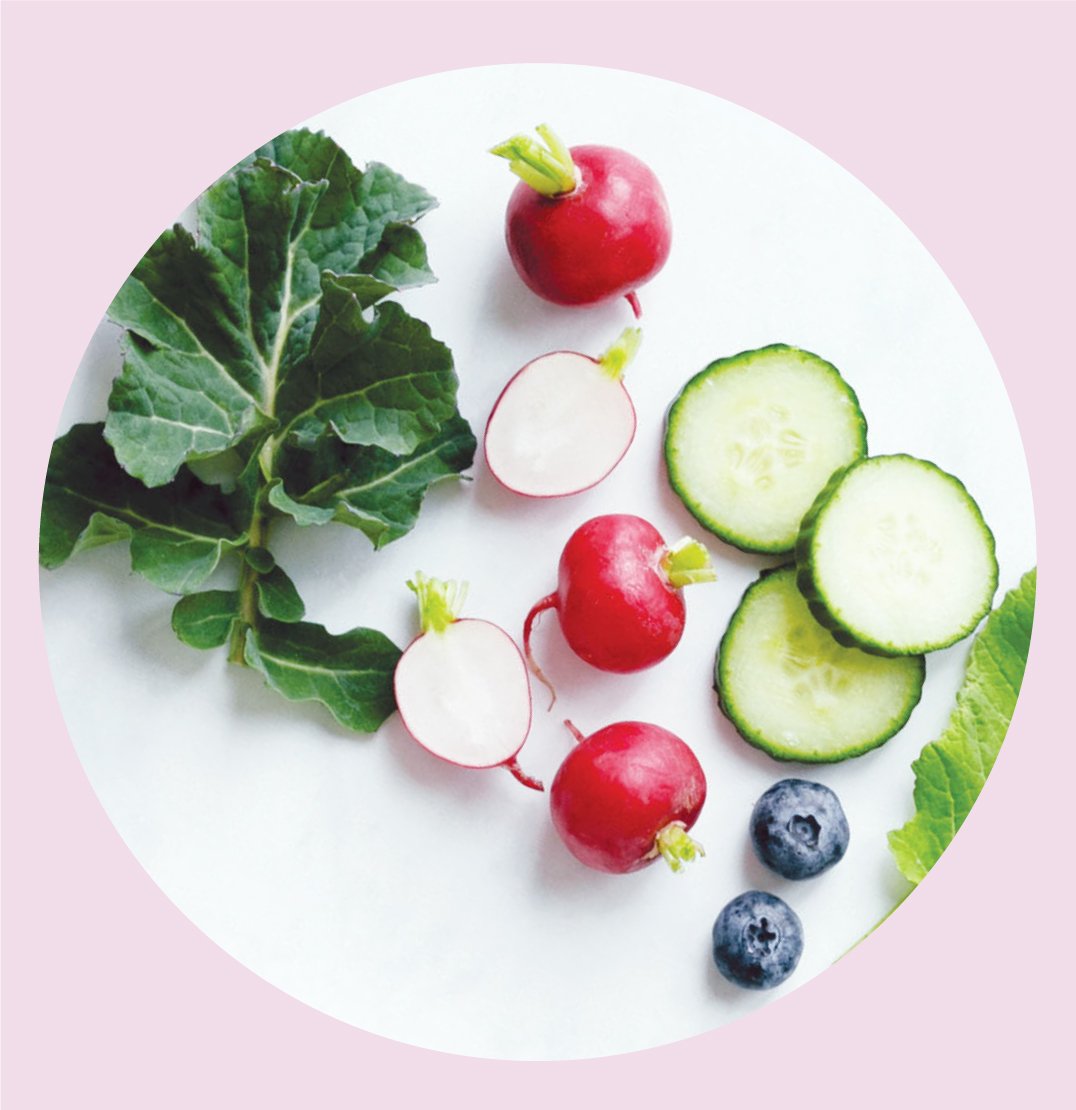
HOW BLOOD SUGAR IMPACTS BRAIN FUNCTION
First, it's important to note that our mood can affect our food choices. If you are feeling low-energy, tired, or out-of-sorts for any reason, you are more likely to choose foods that are high in calories, sugar, or fat, as your body is looking for a quick, easy solution for fuel. Highly processed foods such as chips, fries, candy, or other packaged junk foods typically fit the bill.
Let's talk about the experience of getting "hangry," or when someone becomes angry as they feel a surge of hunger.
"Low blood sugar is your brain freaking out—as your blood sugar level falls, it hits the panic button," Dr. Drew Ramsey, a psychiatrist, author, and founder of the Brain Food Clinic in New York City, writes in a blog post.
If you question your own food-mood connection, science has helped establish that "hanger" is real. A small 2022 study published in the journal PLoS confirmed that as participant's self-reported hunger scores increased, they were more likely to also feel angry and irritable.[14]
Research shows that overconsumption of refined grains can increase the risk of depression and anxiety, thanks to repeated and rapid increases and decreases in your blood sugar. Some experts call this the "roller coaster effect."[15]
Foods that cause your blood sugar to spike and then lower can trigger the secretion of regulatory hormones like cortisol, adrenaline, and glucagon.[16] The potential effects of this response has been looked at and research indicates that those hormones can cause changes in anxiety, irritability, and hunger.[17]
Dr. Ramsey recommends that one of the keys to keeping your blood sugar stable is to eat for the microbiota in your gut.
"Eat lots of rainbow plants, fermented foods, and legumes if you want to grow ‘good bugs,' a diverse population that keeps you healthy and happy," he writes.
Other tips to keep hangry moments at bay include keeping regular meal and snack times throughout the day and/or pairing your carb-rich snacks with protein and fat. For example, you can enjoy a handful of nuts with juice or make a smoothie with fruits, fat, and protein.
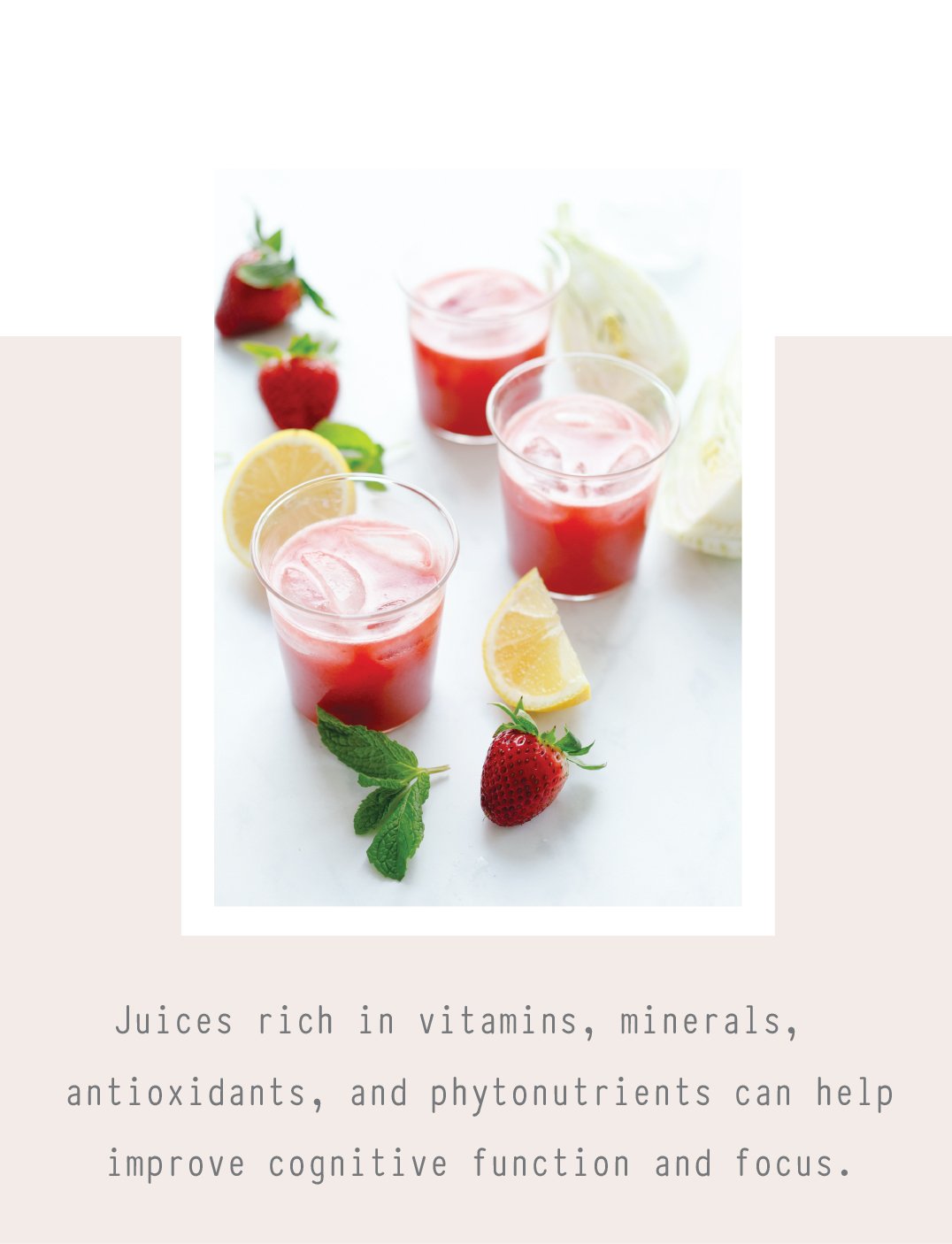
JUICING FOR BRAIN HEALTH
Making juice from fresh fruits and vegetables is a great way to nourish your body and your brain. These colorful foods provide vitamins, minerals, antioxidants, and phytonutrients that can help improve cognitive function and focus. Consider combining some of the power plants from our list, such as citrus and leafy greens, or berries and red cabbage, to make a delicious juice that can bolster your brain health.
POWER PLANTS FOR YOUR BRAIN
Many fruits and vegetables are linked to better brain health, thanks to mounting scientific research that explores the connection. A 2022 study observed that older adults who ate or drank foods with flavonols, types of flavonoids found in many fruits and vegetables, had slower rates of memory decline. Here are more specifics on certain fruits and vegetables.
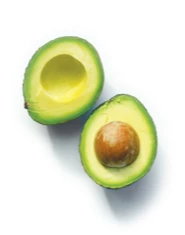
AVOCADOS
A 2020 study uncovered that eating more high quality fats like the monounsaturated ones found in avocado was linked to lower anxiety in women. They also contain folate, which is known to help boost mood.
BANANAS
A banana a day can help reduce symptoms of anxiety and depression, thanks to its vitamin content. One banana offers 20 percent of your daily recommended amount of B6, which can help reduce symptoms of PMS and improve overall mood according to a 2019 meta-analysis of B vitamins.
CITRUS
Citrus fruits such as lemons, oranges, and grapefruits contain vitamin C and flavonoids, which aid in cognitive function, improve overall brain health, and reduce the risk of age-related mental decline. One small-scale study found that drinking orange and grapefruit juice helped to enhance blood flow to the brain and improved cognitive performance.
BERRIES
Not only are they delicious, but blueberries are full of plant compounds called anthocyanins, which support healthy brain function and help combat inflammation throughout the body and in the brain. They are also another great source of folate, a mood-boosting nutrient. Clinical research has found that berries can help prevent age-related neurodegenerative diseases and improve motor and cognitive functions, because they are full of antioxidants such as anthocyanin, caffeic acid, catechin, and quercetin.
DARK CHOCOLATE
Dark chocolate, derived from the cacao plant, may have brain health benefits. A large survey of more than 13,000 adults found that those who regularly consumed dark chocolate had a 70-percent reduced risk of developing depressive symptoms. Dark chocolate also contains high levels of magnesium, an essential mineral for brain function.
-v1711753586996.webp)
LEAFY GREENS
Green leafy vegetables such as arugula, kale, spinach, lettuces, and more are also associated with helping to slow age-related cognitive decline. A 2017 study found that consuming at least one serving of leafy greens a day was enough to reduce mental decline with aging.
RED CABBAGE
Red cabbage is another powerful brain food, thanks to anthocyanin, which boosts mental function and concentration. It also boasts vitamin K, a natural fat-soluble vitamin that can help protect the brain from signs of dementia.
1. WHAT DO YOU CONSIDER THE TOP BENEFITS OF JUICING?
For me, the top benefits of juicing include a significant increase in nutrient intake from fruits and vegetables, enhanced hydration, and the ability to easily consume a wide variety of produce that I might not otherwise eat in a day. It's also a fantastic way to boost my immune system, support my body's natural detox processes, and maintain high energy levels throughout the day. Plus, it's a creative way to explore different flavor combinations and enjoy fresh produce in its most vibrant form.
2. WHAT ARE YOUR FAVORITE SEASONAL SPRING INGREDIENTS TO ADD TO YOUR JUICES?
Spring is such an exciting time for juicing because of the fresh produce it brings. My go-tos for juicing are definitely parsley, cilantro, and mint. These add not just a burst of freshness to my juices, but also pack a punch in terms of flavor and health benefits. Parsley and cilantro are great for detoxification, and they offer a wealth of vitamins and minerals. Mint is refreshing and can help with digestion. For sweetness and a vitamin C boost, I love incorporating strawberries and raspberries. Cucumber and celery are my favorites for adding volume and hydration without overpowering the other flavors.
sources:
- https://www.tandfonline.com/doi/full/10.1080/08870446.2018.1525492
- https://umanaidoomd.com/blogs/blog/6-pillars-of-nutritional-psychiatry
- https://www.nia.nih.gov/health/alzheimers-and-dementia/what-do-we-know-about-diet-and-prevention-alzheimers-disease
- https://www.nhlbi.nih.gov/education/dash-eating-plan
- https://www.nia.nih.gov/news/further-evidence-controlling-high-blood-pressure-can-reduce-dementia-alzheimers-risks
- https://pubmed.ncbi.nlm.nih.gov/31534116
- https://www.ncbi.nlm.nih.gov/pmc/articles/PMC7322666/#ref14
- https://www.science.org/doi/10.1126/science.342.6156.301
- https://www.americanbrainfoundation.org
- https://www.ahajournals.org/doi/full/10.1161/JAHA.123.031514?rfr_dat=cr_pub++0pubmed&url_ver=Z39.88-2003&rfr_id=ori%3Arid%3Acrossref.org
- https://medicine.yale.edu/news-article/poor-sleep-may-increase-markers-of-poor-brain-health-new-study-finds
- https://pubmed.ncbi.nlm.nih.gov/21669584
- https://pubmed.ncbi.nlm.nih.gov/28901958
- https://journals.plos.org/plosone/article?id=10.1371/journal.pone.0269629
- https://www.hopkinsmedicine.org/-/media/general-internal-medicine/documents/faculty-resource/get-off-the-blood-glucose-rollercoaster.pdf
- https://www.ncbi.nlm.nih.gov/pmc/articles/PMC7322666
- https://pubmed.ncbi.nlm.nih.gov/8243825
- Choosing a selection results in a full page refresh.
- Press the space key then arrow keys to make a selection.
